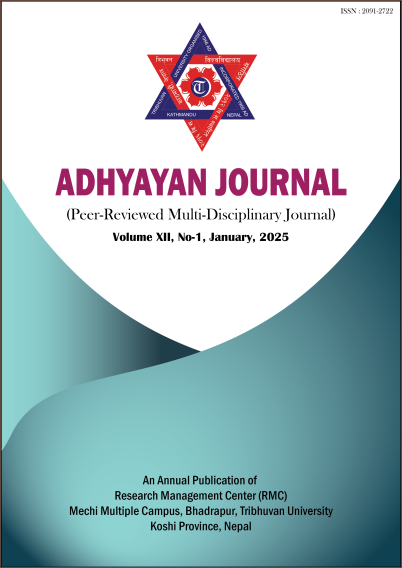Basic Principles of Democratic Constitution
DOI:
https://doi.org/10.3126/aj.v12i01.73463Keywords:
Constitutionalism, equity, fairness, popular sovereignty, rule of lawAbstract
The basic values rooted in a democratic constitution serve as the foundation for protecting individual liberty, establishing an equitable society, and encouraging civic duty. At its heart, a democratic constitution must explicitly proclaim people's sovereignty, guaranteeing that all political authority is derived from popular desire. This includes holding free, fair, and regular elections that allow individuals to pick their representatives without force or manipulation. Furthermore, the constitution should guarantee fundamental human rights and freedoms such as free speech, religion, assembly, and the press, promoting an atmosphere in which different points of view may be expressed and heard. The notion of the rule of law must take first place guaranteeing that all persons and institutions are held accountable to the law, which is equitably applied and enforced. Another key component is the separation of powers, which provides checks and balances to prevent abuse of authority by different and independent departments of government (executive, legislative, and judicial). Furthermore, the constitution should encourage social justice, equality, and minority rights, guaranteeing that all people have equal opportunities and are protected from discrimination. This study focused on secondary sources of knowledge about the idea and status of the fundamental values entrenched in the democratic constitution. These principles, taken together, guarantee the creation and preservation of a dynamic, inclusive, and resilient democratic society.




